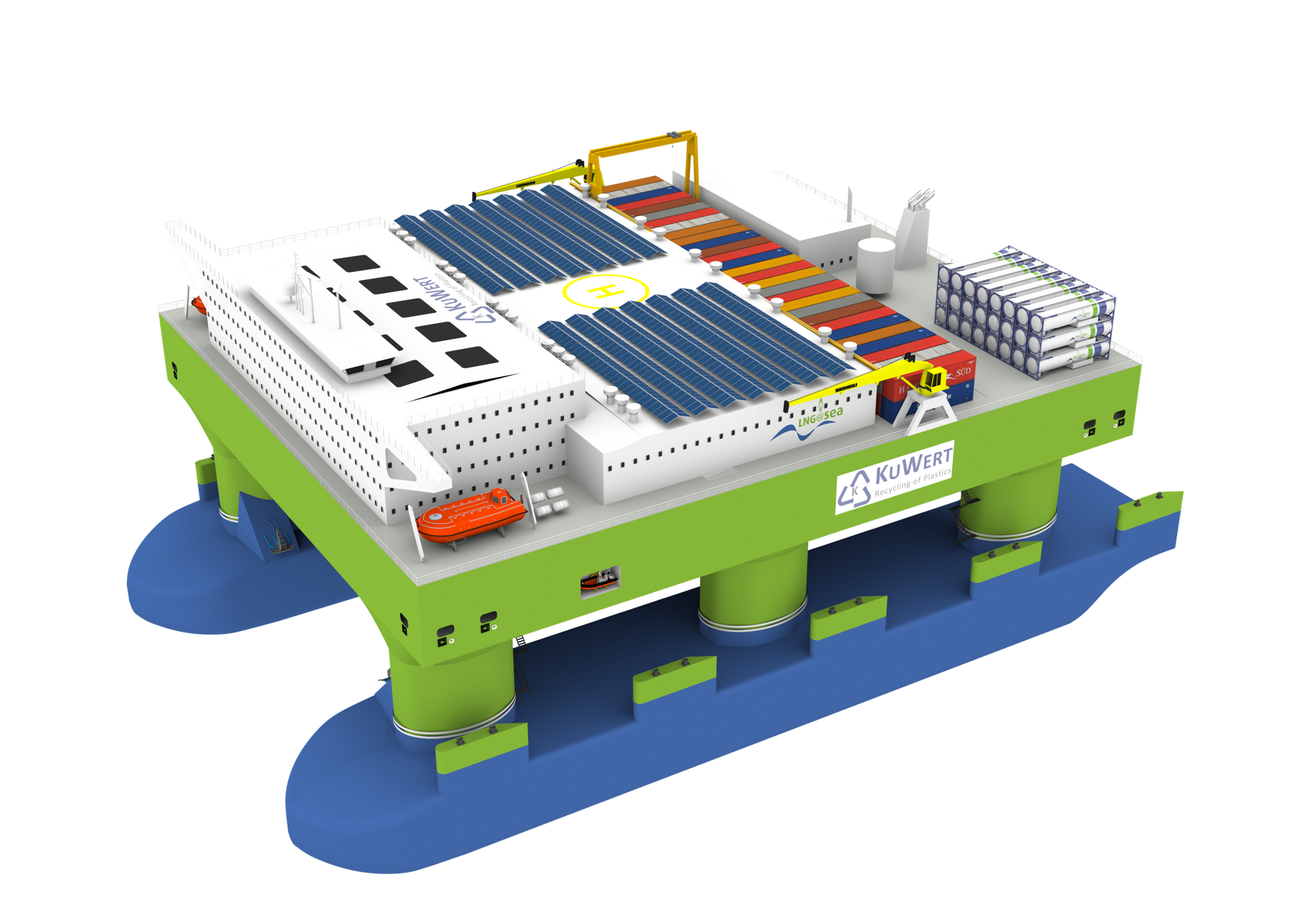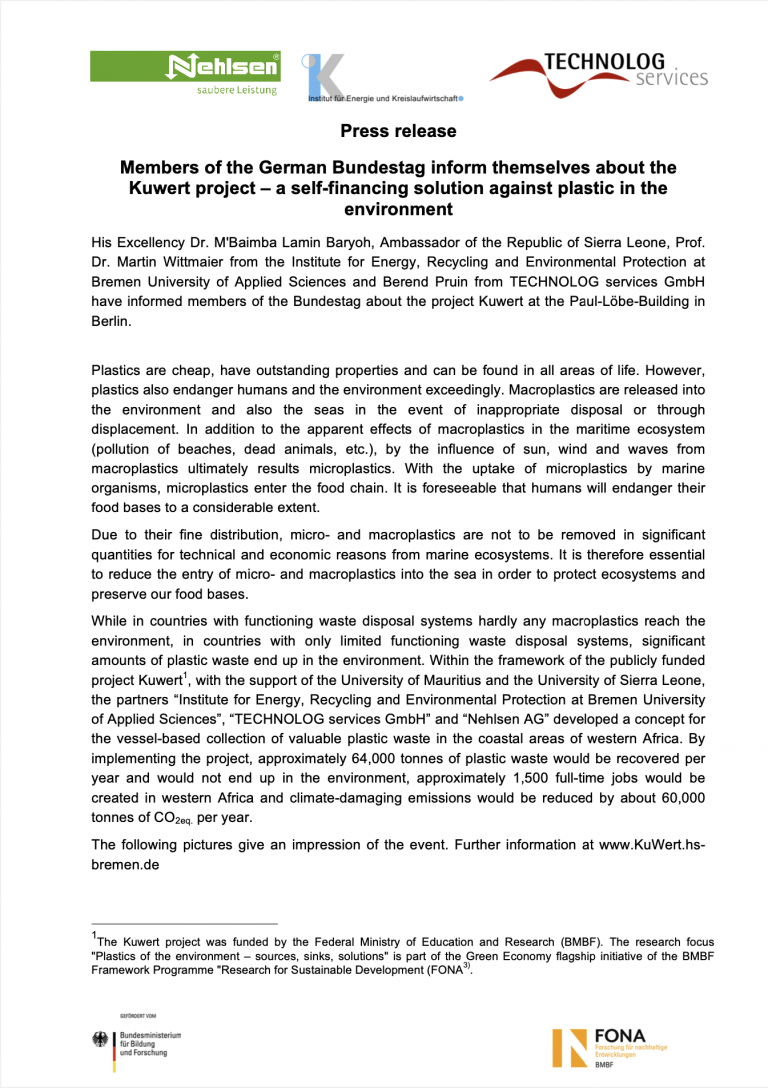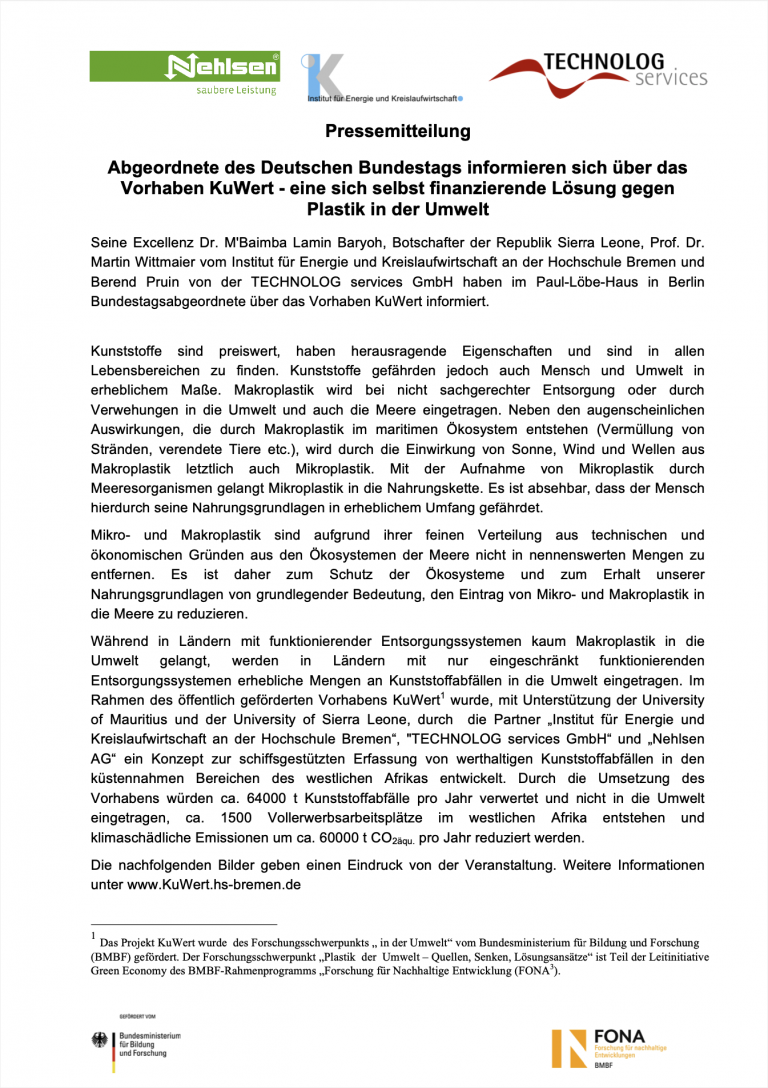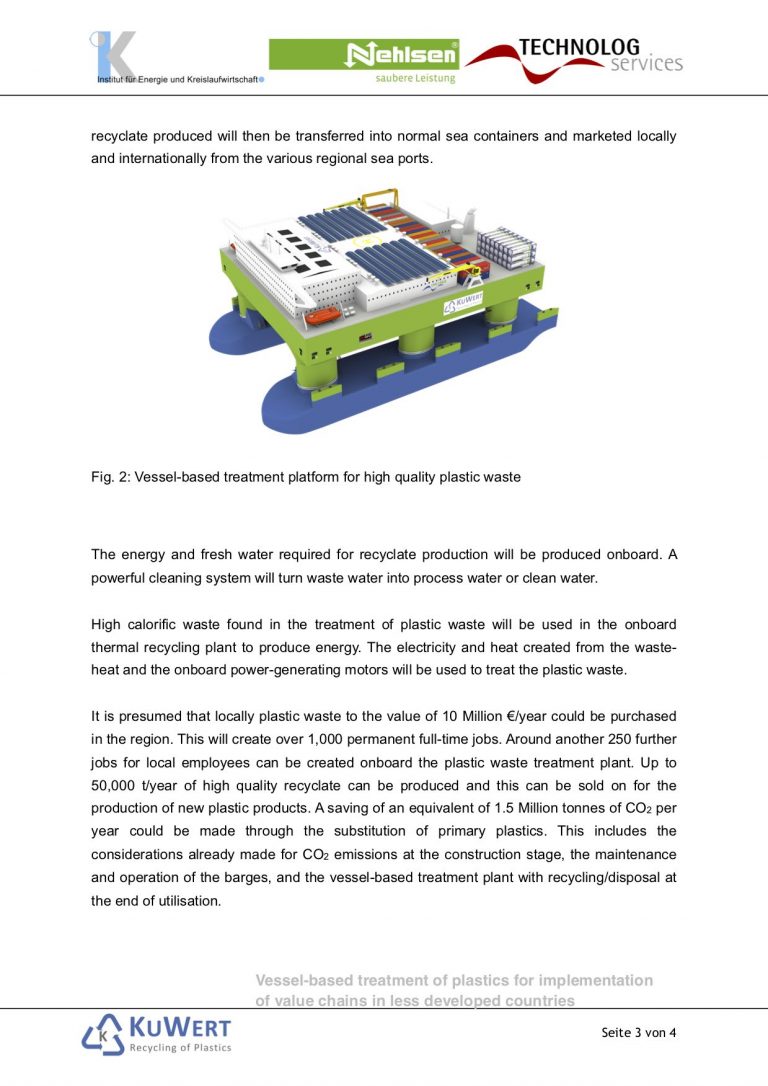Experts estimate that more than 300 million tons of plastics are produced every year worldwide. The planet is literally flooded. What should people do? Without functioning waste disposal systems, they do not know how and where to get rid of their garbage. So, the garbage ends up in the ditch. If it rains, the stuff is swept across the rivers into the sea. Ten million tons are released into the oceans every year. At plastic smother marine mammals. The garbage clogs her digestive system. Microplastic damages the genome and the hormone balance of marine animals. Even in our food chain, plastic has long since arrived.
The Hamburg-based maritime engineering firm TECHNOLOG (www.technolog.biz) has come up with a solution for reducing the environmental pollution caused by plastic. The company wants to ensure that the garbage does not even land in the sea. The idea is a floating recycling plant that cruises off the West African coast and encourages people to collect the garbage. The name: "KuWert". The abbreviation stands for plastic recycling.
KuWert - New ways to reduce plastic waste in the sea
Plastics in the Environment - sources - lowering - solutions
Plastic waste is a major threat to marine ecosystems. Roughly estimated 10 million tonnes of plastic waste end up in the oceans every year and are not mined there for centuries. To prevent this, there must be functioning collection and disposal systems. However, this is not the case in many less developed countries. This is where the joint project KuWert comes in. The researchers develop solutions for the ship-based treatment of plastics. It should help to create new value chains in developing countries and to avoid plastic waste in the oceans.
Broken value chains cause plastic entries
So far, it has not been technically and economically possible to remove plastic waste from the oceans on a large scale. As a result, the amount of plastic waste in marine ecosystems is steadily increasing and could double by 2025. Solutions must therefore be created that reduce the input of plastics into the environment. Land-based waste systems, which are common in industrialized countries, are often lacking in less developed countries due to uncertain political and economic conditions. Plastic usually gets into the environment here and from there, especially in coastal areas, in large quantities into the oceans. There is hardly any commercialization, so the value chains are interrupted. As a result, plastics are on the roadside at a market price of up to € 600 / Mg, although substantial portions of the population live on a dollar a day less.

Plastic waste in Sierra Leone being washed into the sea during the rainy season.
Ship-based treatment as an innovative approach
The KuWert joint project therefore has two objectives: to reduce the input of plastic waste into the environment and the seas while at the same time creating value chains by recycling plastic waste in the participating countries of Sierra Leone, Mauritius and others. At the heart of the concept is a ship-based solution for the collection, treatment and marketing of plastic waste. This is intended to circumvent the difficulties associated with the establishment of a land-based waste management infrastructure. A first draft of a modularly equipped platform already exists. This is to be equipped with the respective required storage areas, conveyor belts, balers, crushers, washing systems, drum screens, magnetic separators, plastic detector sensors, sorting equipment, suitable construction machinery and an extruder for processing recycled plastics.
Cleaner environment and economic benefits
KuWert thus addresses the source of the problem: through new possibilities of utilization on the ground, the concept creates incentives to collect the plastic waste generated in households and the economy so that it does not even get into the environment and the oceans. In addition, valuable secondary raw materials are obtained. These can be turned over to the international recycling market by the mobile nature of waste management, which makes it possible to access ports on international trade routes. The researchers also want to investigate whether it is technically and economically possible to produce and market plastic waste in the destination countries themselves, such as piles, paving stones or roof tiles. By closing value chains, people benefit not only from a cleaner environment, but also from an economic point of view. This creates the precondition that the mobile waste treatment system can be sustainably implemented in the target countries.
Researchers and shipbuilding engineers have successfully demonstrated that the realization of the offshore recycling platform on board the semi-submersible is technically and economically feasible. Precious recyclates are sold on the world market. If necessary, low-quality recyclates can be processed into piles, planks, paving stones or roof tiles on board and marketed in the selected West African countries. By closing these value chains, people benefit not only from a cleaner environment but also from an economic point of view by creating around 1300 to 1500 local jobs. This creates the prerequisite that the mobile waste treatment system can be sustainably implemented in the target countries.

Concept of a ship-based platform for the treatment of plastic waste
Image Credits: Salieu Sankoh
Graphics Credits: Christoph Rasewsky
Kampf gegen Plastik: Umwelthilfe und Sozialprojekt - BR-24
Downloads
Schiffgestützte Behandlung von Kunststoffen zur Implementierung von Wertschöpfungsketten in wenig entwickelten Ländern - Pressebox Bremen
Fortschritte bei der schiffgestützten Behandlung von Kunststoffen - Workshop in Freetown, Sierra Leone - Pressebox Bremen
Other press releases - KuWert Bremen HS










